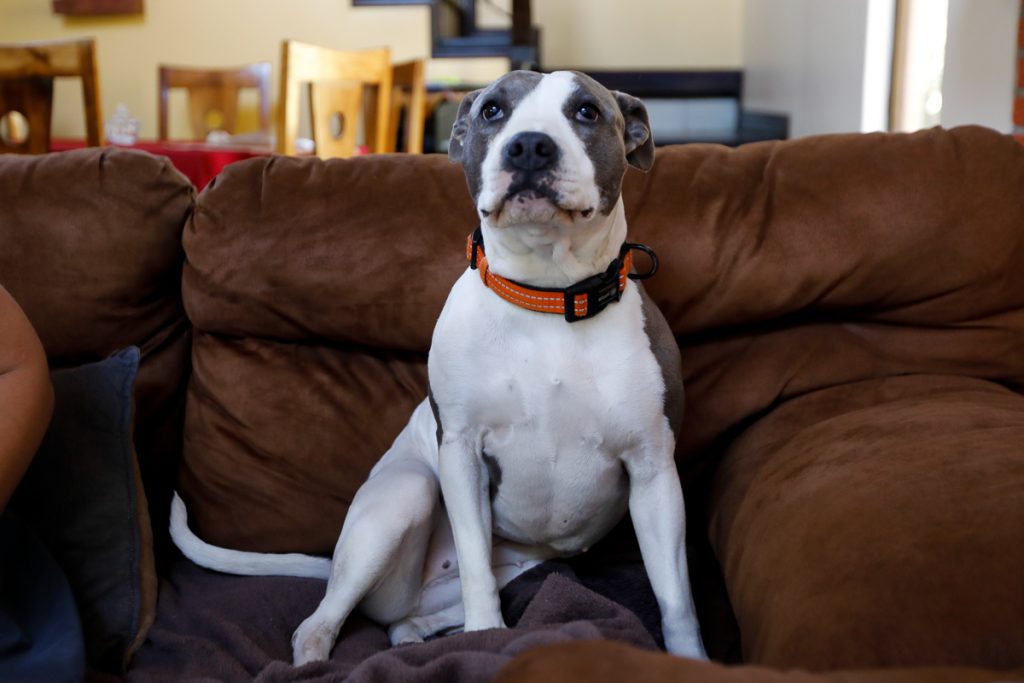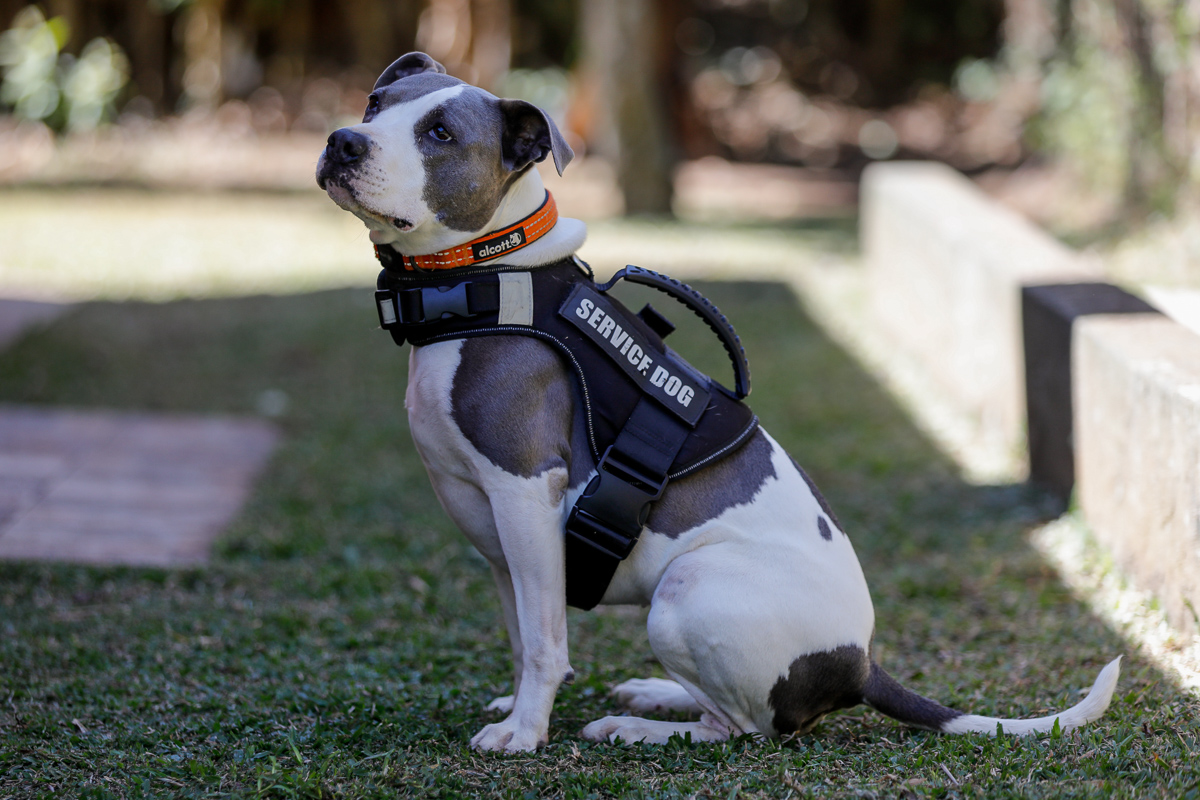When Ingrid Calderón takes Tara for a walk to the mall, it is normal for them to be stopped by a security officer to ask her to put a muzzle on her dog. Tara is a six-year-old American Staffordshire Terrier (Amstaff). As part of the breed that belongs to the Terrier group, descended from the American Pitbull Terrier, she always elicits a fearful reaction from strangers.
The stigma that Tara carries is one borne by many animals—and many people, too.
Ingrid adopted Tara when she gave money to a very low-income family member in exchange for the dog. Tara was originally going to be a member of a household where a single mother of two children was expecting a third; the family’s living conditions were unsuitable for a dog the size and temperament of an Amstaff. “What a shame, because you already know how this story will end,” Ingrid remembers thinking when she decided to find a way to bring Tara home.
From a very young age, Tara showed a different temperament than her breed might suggest, but Ingrid also worked to train and socialize Tara as much as she could. Today, Tara has participated in many canine events, but she stands out as a volunteer for Aula Pet. There, this pet has not only supported Costa Rican schoolchildren, but has also worked with young Costa Ricans who, like her, may suffer from the weight of a stigma.
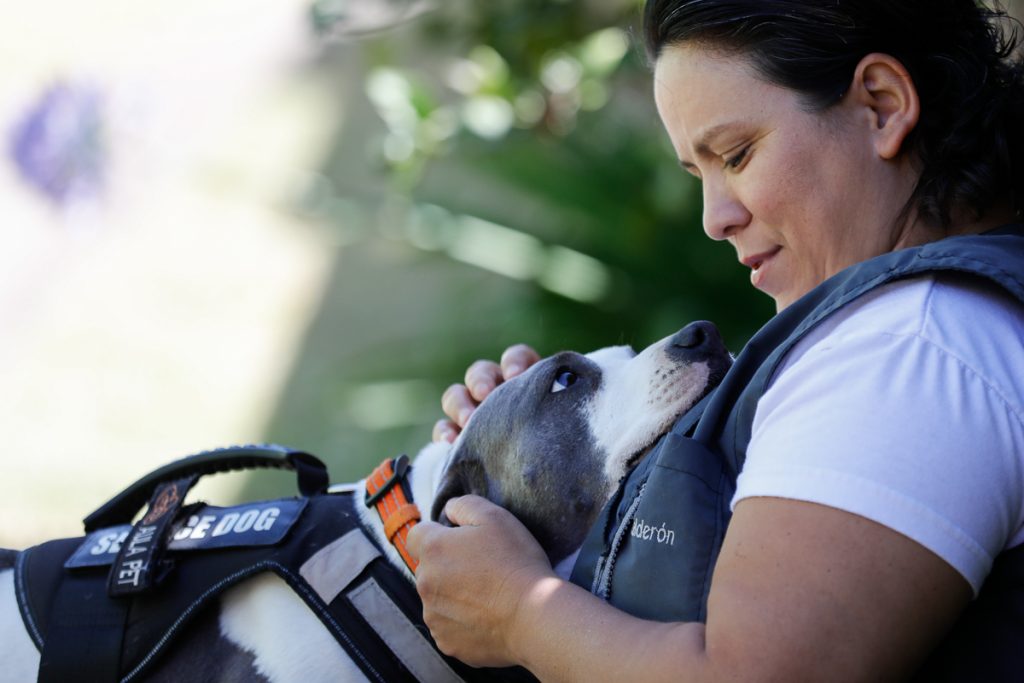
What is Aula Pet
Aula Pet(Pet Classroom), according to its founder, Xinia Jimenez, is a social enterprise based on animal-assisted intervention to promote leadership in children, youth and adults in Costa Rica. “The bond that humans have with dogs is associated with the development of skills to get along with others, to be flexible and innovative, to face fear,” the promotional material for Aula Pet state.
Initially, the goal was to visit as many schools as possible to provide dog-assisted life skills trainings.
“One finds that Costa Rica’s educational system is tough. They barely have the resources to function,” says Xinia, when she recalls Aula Pet’s founding in 2016, and its reinventions ever since.
Xinia, an entrepreneur with experience in implementing technological projects, suffered a fall at work that caused an injury. After a five month hiatus, and having implemented very effective automation at her company, she returned to find that she no longer had a job. She tried many different kinds of therapy for her physical and emotional pain, but in the end, she recovered thanks to her work as a volunteer in a dog-assisted intervention project for children called ACOTEAMA.
During that experience, she decided to train as an expert in animal-assisted intervention. Her graduation project combined her first university major, education, with her professional career. That’s how
Aula Pet was born.
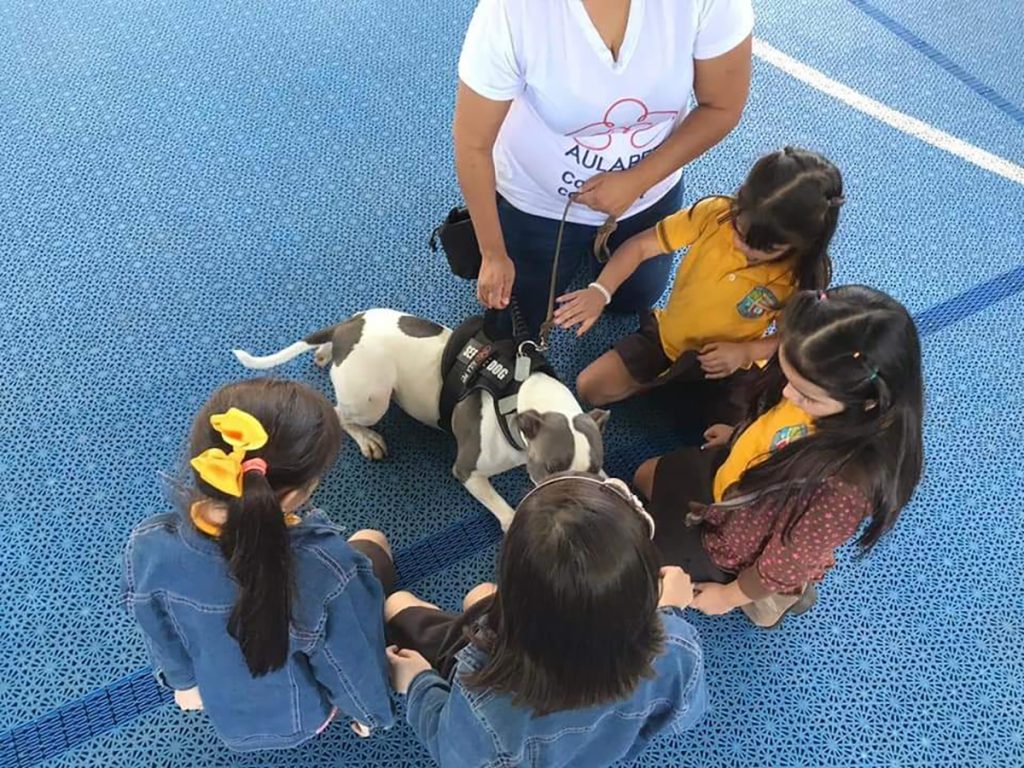
For Xinia, it was very important to set up the project with a functional financial model.
“I had already seen organizations suffer because when they run out of funds, the goal is over,” Xinia recalls. Thus, as the businesswoman that she is, she decided to finance these activities through income from companies that wanted to hire dog-assisted intervention for leadership and teamwork training activities.
To date, the enterprise has served almost 8,000 users between companies, schools and colleges, universities, pet fairs, and two prisons.
‘Connect with your inner power’
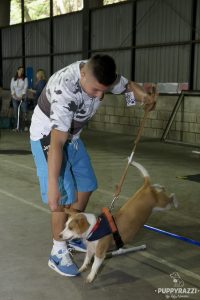
“It was very unemotional [initially] because it had more to do with employment,” explains Maureen Sánchez, who was a counselor for six years at the Zurquí Center. She currently works as the director of the Ofelia Vincenzi Peñaranda Specialized Center, a penal center for young people between 18 and 24 years of age.
For Mauren, the objective of employability was achieved, because the youth get to see various options for making a living—from offering dog-walking services to grooming services. But she says the project has ended up accomplishing much more than that.
“[Aula Pet] addresses a number of life skills without even talking about life skills,” she says. “Many times [the young people who participate] had been violent with animals before. They gave them drugs, they gave them liquor. Part of the process is raising awareness of the damage they were doing to the dogs.”
The canine volunteers who participate in the Zurquí project are generally large breed animals, and in many cases from stigmatized breeds such as Tara’s.
“[The breeds] have a lot to do with the population. They are adolescents and young adults like everyone else, but they are highly stigmatized, marked by criminal behavior and a rather sad story. We don’t want run into them all of a sudden,” says Maureen. “But if we give them respect, listening, empathy, we can also get good things.”
In their two years of work at the Zurquí Center, Aula Pet held two workshops of seven sessions each with 16 young people. The sessions were led by Xinia, as the specialist in assisted intervention; a dog trainer; canine volunteers and their owners, including Tara, the Amstaff, and her owner, Ingrid; and special guests who work on a specific leadership training topic at each session.
Some of those special guests were other dogs: in one session, the participants had to bathe and tend to dogs recently rescued from the streets.
“When they brought in some dogs from the shelter, they were totally homeless, and that generated a lot of empathy in the boys. Plus, it allowed them to give something of themselves,” says Maureen. “They took care of bathing them. Being able to contribute, being able to understand that we can also help, is very important.”
Through dog-assisted therapy, kids must work as a team with their canine companion to learn new ways to communicate, especially using positive reinforcement training. At the end of the workshop they must present a routine of commands and interactions with their dog to their classmates and the center’s management. Along the way, they learn about animal welfare, dog care, dog training, the importance of compassion, and the difference between compassion and pity. They learn about teamwork and experience what it means to work as a group. They then apply these lessons to leadership concepts by making decisions and actions, and modeling by example.
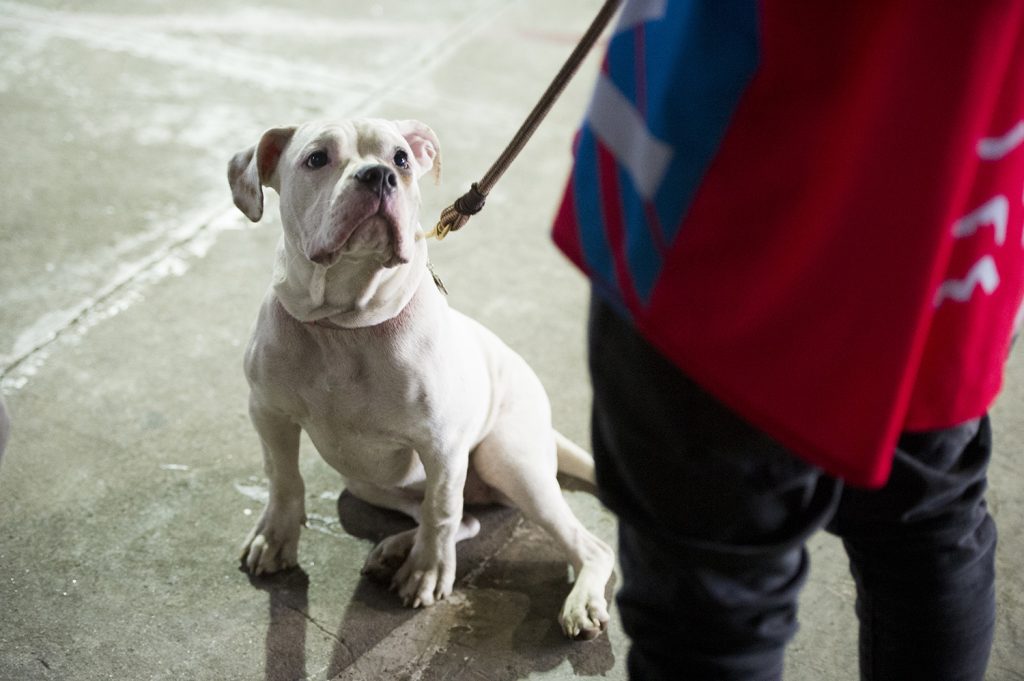
“We work so that they can understand that the dog is only going to help them; the dog is not going to save you from anything. The dog is only going to help him find the path that they’re choosing,” says Xinia. “And that in the future, when I go out and meet another being—not a dog—they can accept help, even if it is not from their family.”
In 2019, Aula Pet began working with 10 young adults between 18 and 24 years of age from the Ofelia Vincenzi Peñaranda Specialized Center. However, the training was interrupted by the pandemic.
At the time of the publication of this article, the program is about to start another group in the Zurquí Center with six young people, but Aula Pet is waiting for sponsorship funds to be deposited.
The challenges of a social enterprise
Before 2018, Xinia encountered significant barriers as she pursued her goal of working with incarcerated youth. For more than a year, she knocked on the door of the prison in different ways. However, it was not until a well-known company prepared to launch its own volunteer program that she managed to bring her canine volunteers to the center. Today, Aula Pet has formal authorization to carry out its workshops.
The new difficulty is budgetary, which has only been aggravated by the pandemic. Aula Pet finances the Zurquí project through the income that comes from companies that hire Aula Pet to carry out workshops with their officials.
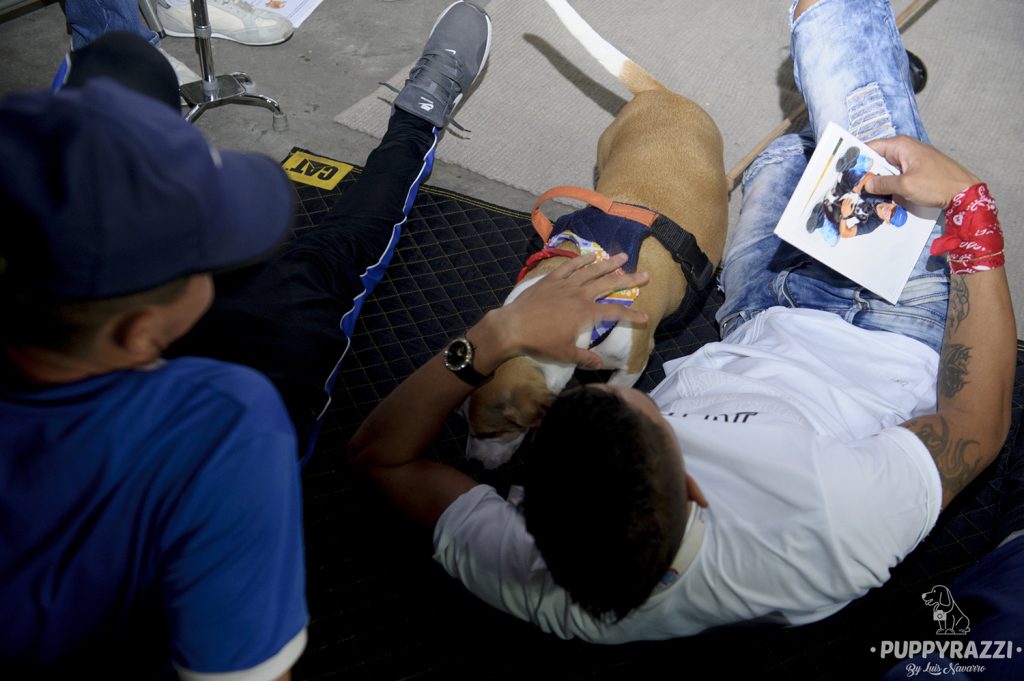
“Aula Pet is a nonprofit social enterprise,” Xinia explains. “One hundred percent of what we earn has gone to the project. When we visit a company, each dog that attends earns a symbolic salary, and we pay the expenses of the activity itself. What remains of the cost [paid by companies] is for the Zurquí project.”
In 2022, Aula Pet has also set the goal of carrying out stricter assessments that will allow the program to measure the impact of the workshops on the target population, and present those results with greater clarity to partners and sponsors.
“This time we have an assessment that we are going to apply,” says Xinia, who is now working with a psychologist as part of the Aula Pet team. “We want to measure perceptions of bonds, of emotions, what the support means, and see if the program has really been making inroads internally.”
In addition, Xinia wants to further professionalize the work of Aula Pet. So far, the project’s volunteers have been selected based on their skills and aptitudes as assessed through a series of interviews and tests. They then undergo basic assisted intervention training. In 2022, Aula Pet will work with an assisted intervention certification school so that students can do their practice hours with the project. Project leaders also want to encourage their current volunteers to get certified.
Ingrid and Tara are already in this process. Since the beginning of the year, both have been training at the Comprehensive Care Center for People with Disabilities, and are eager to return to workshops with young people from juvenile detention centers.
“Many identify with these breeds,” Ingrid says as she pets Tara, who is sitting on her lap. “They say: ‘If a dog like this that people are afraid of, that are difficult to handle, can do this type of work, can participate in training, then why can’t I be different, despite what people assume about me?’
“It is a very vulnerable population that needs to regain self-confidence. When they learn to do certain tricks with dogs, it empowers the. It makes them feel that they can do something else, and they start to think positively.”
